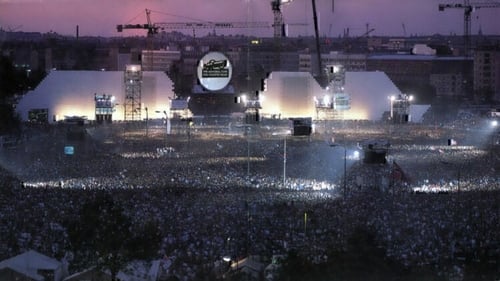James Galway
Nacimiento : 1939-12-08, Belfast, Northern Ireland, UK
Historia
Sir James Galway (born 8 December 1939) is an Irish virtuoso flute player from Belfast, nicknamed "The Man with the Golden Flute". He established an international career as a solo flute player. In 2005, he received the Brit Award for Outstanding Contribution to Music at the Classic Brit Awards.
Galway was born in North Belfast as one of two brothers. His father, who played the flute, was employed at the Harland and Wolff shipyard until the end of the Second World War and spent night-shifts cleaning buses after the war, while his mother, a pianist, was a winder in a flax-spinning mill. Raised as a Presbyterian and surrounded by a tradition of flute bands and many friends and family members who played the instrument, he was taught the flute by his uncle at the age of nine and joined his fife and drum corps. At the age of eleven Galway won the junior, senior, and open Belfast flute Championships in a single day. His first instrument was a five-key Irish flute, and at the age of twelve or thirteen, he received a Boehm instrument.
Galway was educated at Mountcollyer Secondary Modern School in Belfast. He left school at the age of fourteen and worked as an apprentice to a piano repairer for two years.
He subsequently studied the flute at the Royal College of Music under John Francis and at the Guildhall School of Music under Geoffrey Gilbert. He then briefly studied at the Paris Conservatoire under Gaston Crunelle. While in Paris, he asked for lessons from the celebrated French flute player Jean-Pierre Rampal, who offered him advice on his playing, but felt he was already too good a flute player to need lessons from either Rampal or the conservatory. He left Paris to take up his first orchestral flute-playing job at Sadler's Wells Opera in London.
He went on to spend fifteen years as an orchestral player. In addition to Sadler's Wells, he played with Covent Garden Opera, the London Symphony Orchestra and the Royal Philharmonic Orchestra. He auditioned for the Berlin Philharmonic Orchestra under Herbert von Karajan and was principal flute in the orchestra from 1969 to 1975. To Karajan's surprise and dismay, after a period of some disagreement, Galway decided that he would leave to pursue a solo career.
In addition to his performances of the standard classical repertoire, he features contemporary music in his programmes, including new flute works commissioned by and for him by composers including David Amram, Malcolm Arnold, William Bolcom, John Corigliano, John Wolf Brennan, Dave Heath, Lowell Liebermann and Joaquín Rodrigo. The album James Galway and The Chieftains in Ireland by Galway and The Chieftains reached number 32 in the UK Albums Chart in 1987.
Galway still performs regularly and is one of the world's best-known flute players. His recordings have sold over 30 million copies. ...
Source: Article "James Galway" from Wikipedia in English, licensed under CC-BY-SA 3.0.


